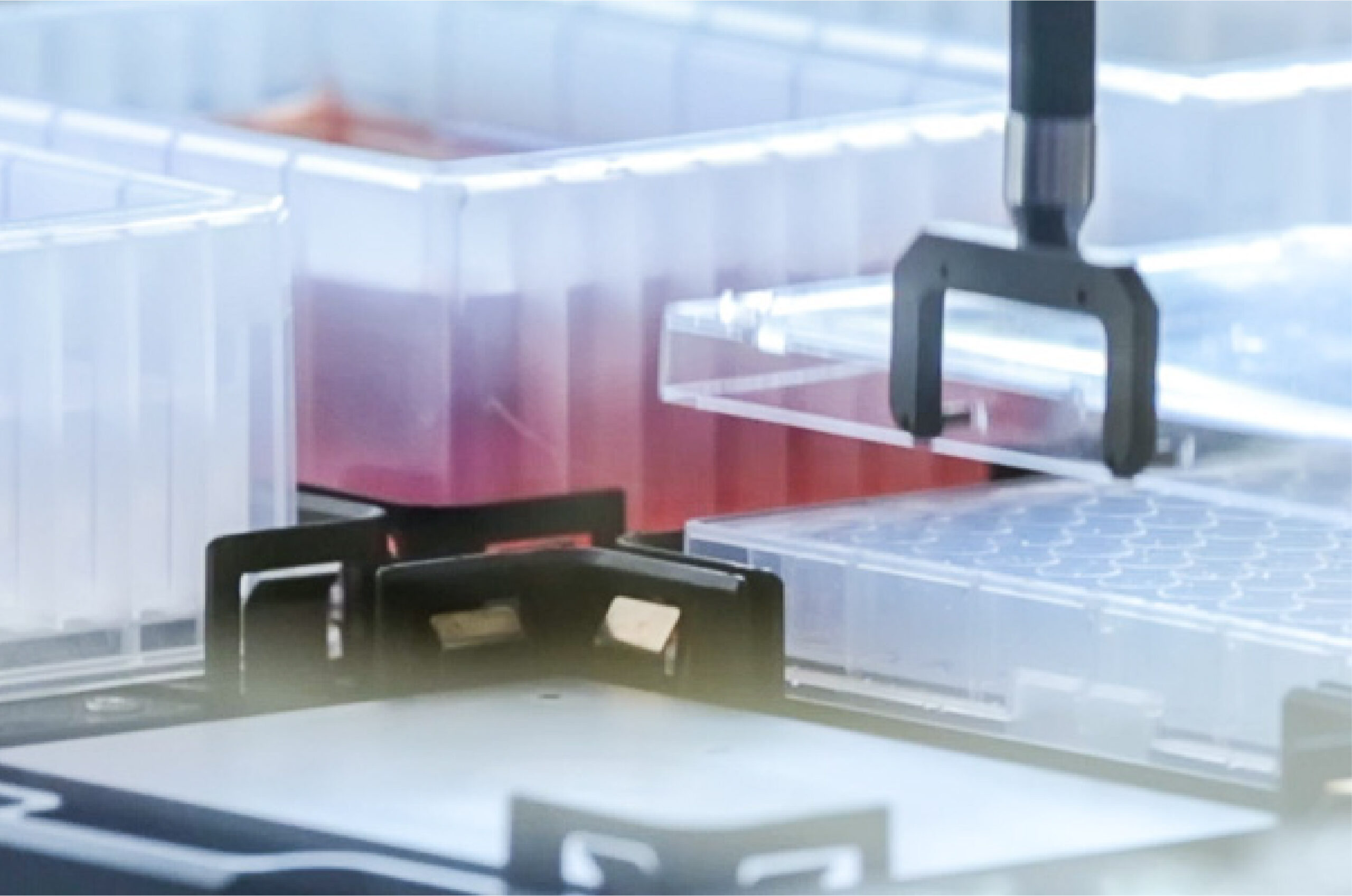Overview
The automated engineering of biology technology platform is a national, open-access facility that hosts a suite of instrumentation for the rapid discovery and engineering of biological systems for the manufacture of advanced Materials from Biology and bio-based materials for clean growth. This is a crucial and burgeoning area of research for the Royce Future Chemicals Material Discovery theme and an important focus for the Manchester Institute of Biotechnology.
Rapid Discovery and Engineering of Advanced Materials from Biology
Royce facilities provide a fully automated robotic platform for the rapid engineering of enzymes (biological catalysts) by ‘directed evolution’, high-throughput analytical platforms, and next generation sequencing for construct/library verification. The platform will also support synthetic biology protocols for engineering microbial production routes for bio-based monomers and sustainable polymeric materials with novel applications and functional properties. When coupled with the Automated Engineering of Biology for Materials Discovery’s (MIB) wider strengths in industrial biotechnology, it offers a world-class capability to synthesise bio-produced molecules and materials.

Capability
The Automated Engineering of Biology technology platform is providing key capability to the Future Biomanufacturing Research Hub, which aims to address advanced biomanufacturing challenges of speed of enzyme discovery and engineering, and the cost of biomanufacturing at scale. Collaborative materials-focused projects are exploring sustainable routes to advanced materials, next generation bio-inspired materials, and end-of-life degradation and recycling. The platform will allow us to harness the enormous chemical space provided by biology to engineer biological (microbial) systems for the synthesis of bio-produced materials.
The Royce AEB platform is highlighted in Future BRH videos: Future BRH – YouTube
The platform is also supporting multiple postgraduate research projects, including PhD students from the CDT in BioDesign Engineering and integrated Catalysis, funded through Future BRH industrial projects.
Integrated Robotics Platform
Central to the Royce facility is an integrated platform, comprising an acoustic (ECHO) liquid handler supported by two pipette-based liquid handling automation platforms (Hamilton STAR), plate sealers/de-sealers, PCR machines, centrifuges and shaking incubators for micro-titre plate-based protocols. Automated (24/7) end-to-end workflows allow users to sample large synthetic DNA libraries, going from a single bacterial colony to high throughput screening assays and product extraction for downstream analytics, all with minimal human intervention.
Automated Colony Picking
The Picking: Qpix420 with robotic feed is a microbial colony picker with intelligent image analysis and precise automation for fast and efficient screening of large libraries. The instrument includes a variety of organism-specific pins and agar sensing for efficient sterile picking. Automated feed of source and destination plates allows walk-away use.
Next Generation Sequencing
A new PacBio Sequel Single molecule, with Real-Time (SMRT) sequencing technology for in-depth long-read gene sequencing with high consensus accuracy. Average read lengths of up to 30kb with up to 20Gb per SMRT Cell. Allows whole genome (humans, plants, animals, microbes), de novo DNA, targeted sequencing and in-depth analysis of cDNA sequences across the entire transcriptome or targeted genes. Generates up to 500,000 long, single-molecule reads with high fidelity for amplicon and RNA sequencing projects.
Liquid Supercritical Liquid Chromatography
Liquid and supercritical liquid chromatography (HPLC/SFC): provides high-throughput analytics for product verification and quantification. Agilent 1290 Infinity II UHPLC: 4 liquid Chromatography instruments provide chemical separation and detection with high retention time precision for reliable peak identification. Agilent 1290 Infinity II SFC: easy-to-use supercritical fluid chromatography allows detection and analysis of chiral and achiral compounds.
Supported Research
Enzyme Biocatalysts
Enzyme biocatalysts (proteins) engineered to efficiently produce molecules of interest (eg chemicals, fuels). The rapid optimisation of enzymes underpins every industrial application of biotechnology, and is essential for a transition to bio-based production;
Monomers for Sustainable Bioplastics
These optimised enzymes could produce monomers for sustainable bioplastics (either as drop-in replacements or next-generation polymeric materials) that would be challenging to produce using traditional organic synthesis (eg highly functionalised chiral materials);
Engineered Proteins
Engineered proteins as materials of interest. Nature has evolved an enormous variety of materials with remarkable properties, and modern genetics and protein engineering allows us to tailor bio-based materials towards specific functions;
Deconstruction of Recalcitrant Polymeric Materials
Deconstruction of recalcitrant polymeric materials. Natural microbes are beginning to evolve enzymatic pathways to degrade plastics. The MIB can evolve enzymes in orders of magnitude faster than nature to tackle environmental contamination and materials recycling.




